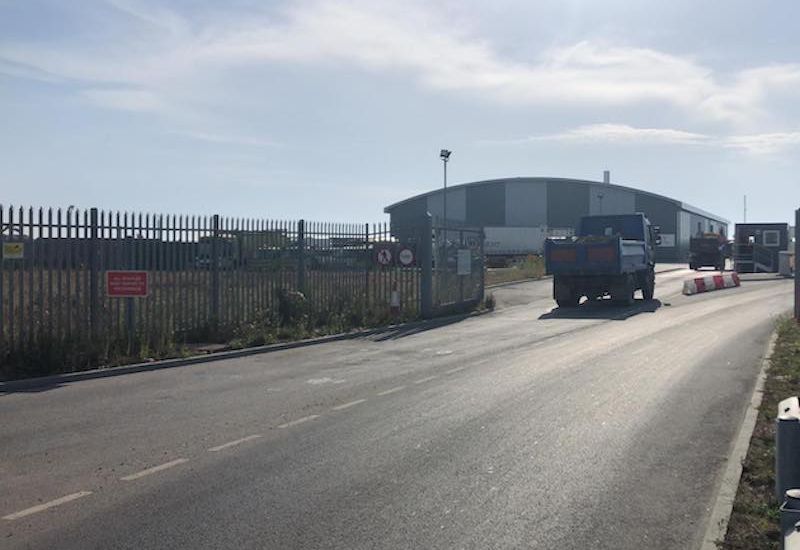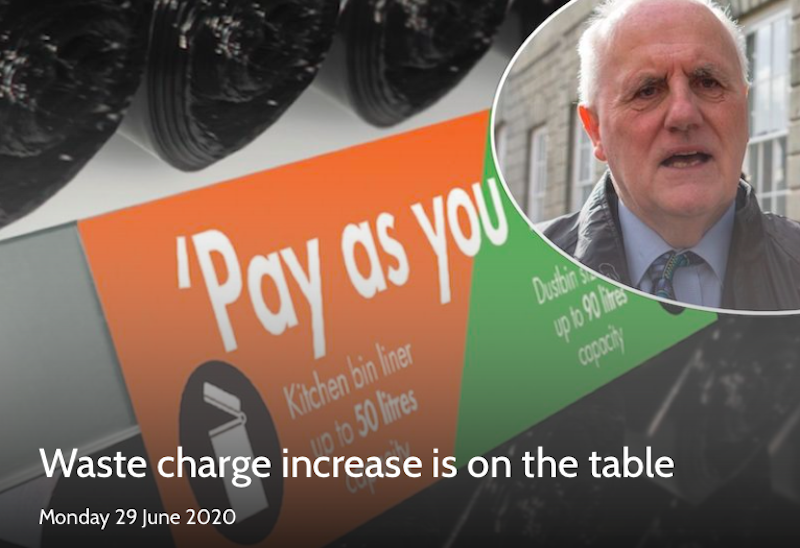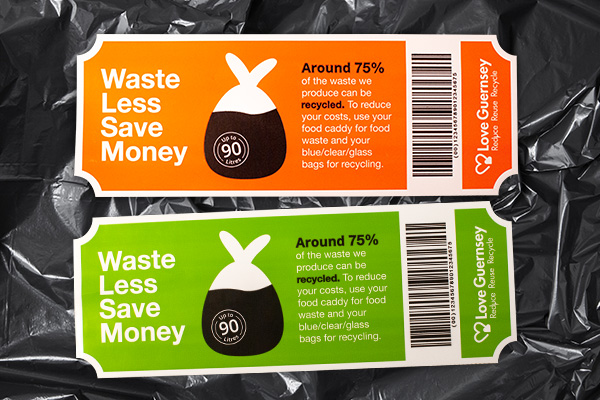


Orange waste stickers will increase by 10p and green ones by 20p, as Guernsey Waste ups its standing and pay-as-you-throw charges to help address a seven-figure shortfall since the new strategy came into force.
Guernsey Waste’s annual bill to households will also go up by £5 to £90, as part of a raft of measures that have been designed to stem losses that have come about, paradoxically, because of islanders' success in embracing the new kerbside recycling arrangements.
Income from bag charges last year was £3 million below Guernsey Waste's initial forecasts, leading to an operating deficit in 2019 of £1.4 million. Further losses are expected this year with charges frozen until 2021.
From January, the pay-as-you-throw charge for a 90 litre bag will go up from £2.50 to £2.70. The price of a sticker for a ‘half size’ waste bag, for up to 50 litres capacity, will rise by 10p, to £1.50.
The increases are expected to raise an additional £255,000 from households next year, while increases in commercial charges - from £240 per tonne to £246 - are estimated to generate an extra £54,000.
Operations manager Sarah Robinson said charges will be reviewed annually, with the aim to break even over 20 years.

Pictured: Earlier this year, then-STSB President Peter Ferbrache told Express that waste charge increases were being strongly considered ahead of 2021.
The island finds itself in a catch-22, with people facing higher charges as a direct result of the community's widespread compliance with efforts for more sustainable waste management.
In 2019, 73% of household waste was recycled, which was up from 50% in 2017, and exceeded the 2030 target of 70%. In a recent survey, more than 90% of islanders said they were using the food waste collections, which is one of the highest participation rates in the world.
“We have made considerable early progress, including hitting our recycling target much sooner than anticipated," said Ms Robinson. "This has had an initial impact on both our income and our expenditure, but we are continuing to take a long-term view.
"The aim will be to avoid any sharp increases or decreases, and look to achieve savings where we can to keep charges to our customers as low as possible.”

Pictured: These increases will see the average weekly and yearly costs rise to around £4.60 and £239 respectively, according to Guernsey Waste's calculations, which is around 25% less than originally forecast. That is primarily because the amount of general rubbish produced has more than halved since the introduction of new collections and charges in 2018 and 2019.
The changes to household waste and recycling services were introduced as part of the island’s long-term strategy to reduce waste. Before those changes, it was estimated households generated on average more than one and half bags of waste per week. That was expected to fall to around one bag a week, following the switch to fortnightly pick-ups for general rubbish, and the introduction of separate food waste collections and a pay as you throw charge.
However the immediate impact has been much greater. Households now only produce on average around one bag every fortnight, and have consequently spent considerably less than was anticipated on the pay as you throw stickers.
Comments
Comments on this story express the views of the commentator only, not Bailiwick Publishing. We are unable to guarantee the accuracy of any of those comments.